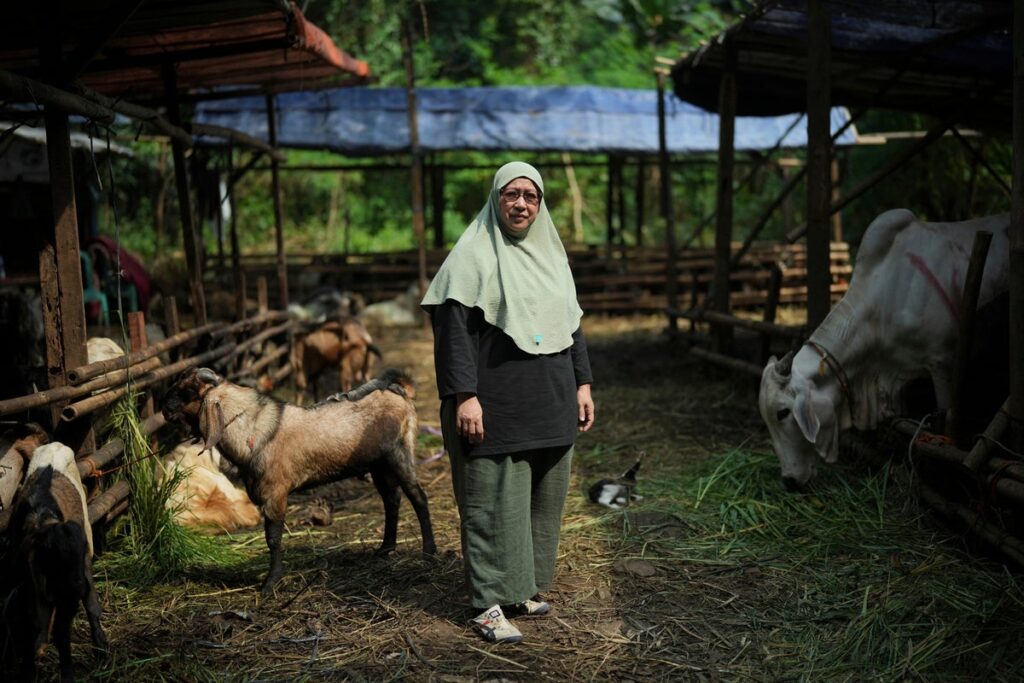Indonesia’s Cattle Markets Roil as Eid al-Adha Approaches
As the Islamic festival of Eid al-Adha, also known as the Feast of Sacrifice, draws near, livestock markets across Indonesia-home to the world’s largest Muslim population-are witnessing a surge in trading activity. The anticipation of the holiday has invigorated cattle sales, reflecting the cultural significance of sacrificial offerings in the Muslim community.
Jakarta’s Jonggol Cattle Market: A Hub of Activity
In the heart of Indonesia’s capital, Jakarta, the bustling Jonggol Cattle Market has become a focal point for traders and buyers alike. The market is teeming with activity as vendors and investors seek out suitable animals for the upcoming religious observance. Since the previous month, sales figures have climbed steadily, underscoring the heightened demand as families prepare for Eid al-Adha, which this year falls on a Friday.
Breaking Stereotypes: Women in the Livestock Trade
Among the traders is Nina Herlina, a 54-year-old woman who stands out in a sector traditionally dominated by men. Her stall, located in South Jakarta, is filled with cattle, sheep, and goats, and she is a testament to perseverance in a challenging environment often characterized by dirt, noise, and animal waste. Her journey into cattle trading is both inspiring and unconventional.
From Law Graduate to Livestock Entrepreneur
Herlina graduated from Muhammadiyah University in 1994 with a degree in law. She married a college classmate who initially encouraged her to pursue a different career path. Her husband later ventured into cattle trading, and after his passing due to COVID-19 in 2021, she faced the daunting task of sustaining the business. The outbreak of foot-and-mouth disease in Indonesia a year later further threatened her livelihood, yet she persisted.
Building a Thriving Business Against the Odds
Within just over a year, Herlina transformed her initial efforts into a successful enterprise, now leading a team of 25 employees. Her dedication has paid off, and she remains committed to her work despite the hardships posed by Indonesia’s climate-frequent heatwaves and heavy rains often disrupt the transportation of animals. She emphasizes her focus remains on her business and her team.
Encouraging Women to Enter Livestock Trading
While cattle trading is a natural fit for Herlina, it remains a profession that many women still view as unappealing or inaccessible. Her message to women contemplating similar paths is one of encouragement: “Women need to have the courage to enter this field. Believe me, it’s a truly promising business opportunity.” Her story exemplifies how resilience and determination can break gender stereotypes and open new avenues for women in Indonesia’s agricultural sector.
Current Trends and Future Outlook
As Indonesia continues to modernize its livestock industry, the role of women like Herlina is becoming increasingly vital. Recent statistics indicate that women now comprise approximately 30% of small-scale livestock entrepreneurs nationwide, a figure expected to grow as more women recognize the potential for economic empowerment through agriculture and animal husbandry. The upcoming Eid al-Adha season is likely to further boost this sector, highlighting the importance of resilient entrepreneurs in Indonesia’s rural and urban economies alike.

